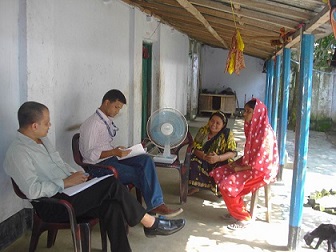LESSON
Lesson Learned: Towards Collaborative and Transparent Local Development Planning
There was no reference system to measure or determine at the end of the project the level of understanding or observe the changes that may have occurred as a result of the project. The effectiveness of the awareness-raising work carried out through village meetings and radio programmes remains unclear. Similarly, it is difficult to assess whether the training courses, which provided a brief overview of governance issues, achieved real change.
Project Partner
Centre International de Développement et de Recherche
Project Description
The project aimed to strengthen the ongoing decentralization process by involving the local population in local development planning. Activities included setting up and training members of cantonal / communal development committees and prefectural development committees in charge of identifying and prioritizing local development needs in order to enhance democratic governance. Support to the annual local development planning process included the implementation of 15 micro-projects which were part of the agreed local development plans, as well as awareness-raising campaigns on decentralization, local development and the roles of local civil servants and citizens.
The project strategy was coherent and designed to complement the grantee’s ongoing local governance support programme. The project was implemented by an international and a local partner NGO. The lack of a specific agreement between the grantee and its local partne, however, contributed to a lack of attention to the project specific elements within the wider development programme.
Report
Evaluation Date
December 2015
Theme
Country
